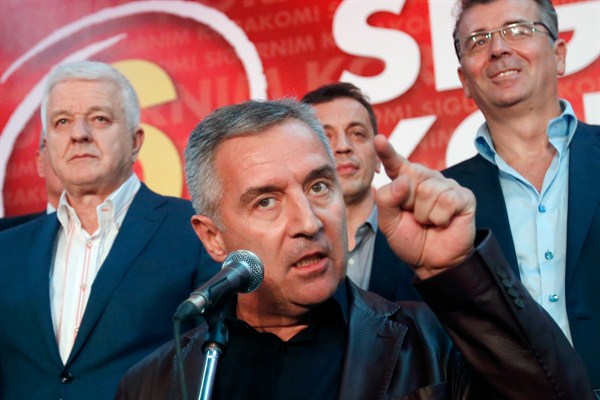On April 15, Montenegrins will go to the polls to elect a new president, but the likely winner will not be a new face. The country’s governing Democratic Party of Socialists, or DPS, nominated Milo Djukanovic, who has governed Montenegro as president or prime minister for much of the past three decades and oversaw the tiny Balkan state’s path to accession to NATO last year. Djukanovic, who retired as prime minister in late 2016, is seen as the leading promoter of Montenegro’s ambitions to join the European Union and position itself closer to Brussels and Washington. But pro-Russian forces in the country have pushed back, and were even accused of orchestrating an alleged coup plot against Djukanovic in October 2016. In an email interview, Luka Oreškovic, a researcher and lecturer at Harvard University’s Institute of Quantitative Social Science, discusses the upcoming election, what Djukanovic’s return means for his party and Montenegro’s politics, and the potential for Russian meddling.
WPR: What are the major policy issues going into the presidential election?
Luka Oreškovic: The key policy issues in the run-up to the election are the same as they’ve been for decades: integration with the European Union and NATO, minority rights, corruption, unemployment and ethnic issues. Even the outcome of this election is likely to be more of the same. Djukanovic, who has served as either prime minister or president with few interruptions since 1991, has decided to return from his 2016 retirement from politics and appears to be the front-runner yet again, due to a highly fractured opposition. Within that opposition, however, a clash between the pro-Serbian camp, which is deeply entrenched in Russia’s sphere of influence, and the Montenegrin nationalist camp is expected to intensify.

